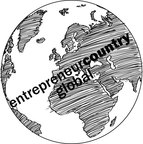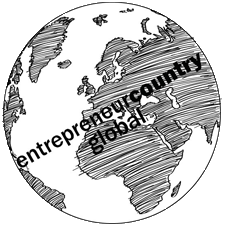Startup Brazil Place Emerging Entrepreneurs on Fast Track
Business in Brazil is booming. The countries’ GDP is the 7th largest in the world, and its scale of manufacturing and industry is staggering.
 Alas, the country may boast impressive returns in a familiar industrial economy, but its service industry is still young, and incubators designed at fostering startups are still in their infancy.
Alas, the country may boast impressive returns in a familiar industrial economy, but its service industry is still young, and incubators designed at fostering startups are still in their infancy.
While it may have impressive commodity and financial markets, entrepreneurial activity in the country is significantly lower, with innovation only accounting for 1.1% of its otherwise huge GDP.
Blame for this may rest in part on the amount of bureaucracy that serves to stifle rather than encourage growth in the small to medium business sector. But this is all set to change.
The reason for this counter-trend is two-fold. First of all, the government is now easing the tax burden and reversing its policy of protectionism to allow small businesses to take off. Secondly, startup incubators are gaining increasing prominence as larger companies seek to gain greater access to the young and innovative entrepreneurs of the future.
One such incubator is Startup Brasil – a state led project developed by the Ministry of Science, Technology and Innovation (MCTI) and modelled after the Startup Chile initiative. The project focuses on the growing IT, communications and technology industry, and is part of a larger initiative launched in August 2012 – Brazil’s Strategic Program for Software and IT Services (“Bigger IT” for short). This in turn was a response to IT services accounting for 4.4% of GDP, and the countries’ new focus on this industry.
It works through careful selection of detailed business proposals, with successful applicants given access to mentors, networks and a capital injection. Last month, 57 projects were selected on to the programme – 46 Brazilian and 11 foreign, and each will follow a 12-month accelerator course designed to fast track them into money makers.
Companies enter into a public-private-partnership, which has since become a popular form of capital investment in developed countries such as the UK.
The selection is diverse, and although it is largely focused on IT and communication, it still suggests a flexible, experimental approach to investment. As the project runs for a 12-month period, it is assumed that results will be fairly conclusive by this time next year.
Until then, I'll be watching the Brazilian startup market with an excited sense of anticipation.

